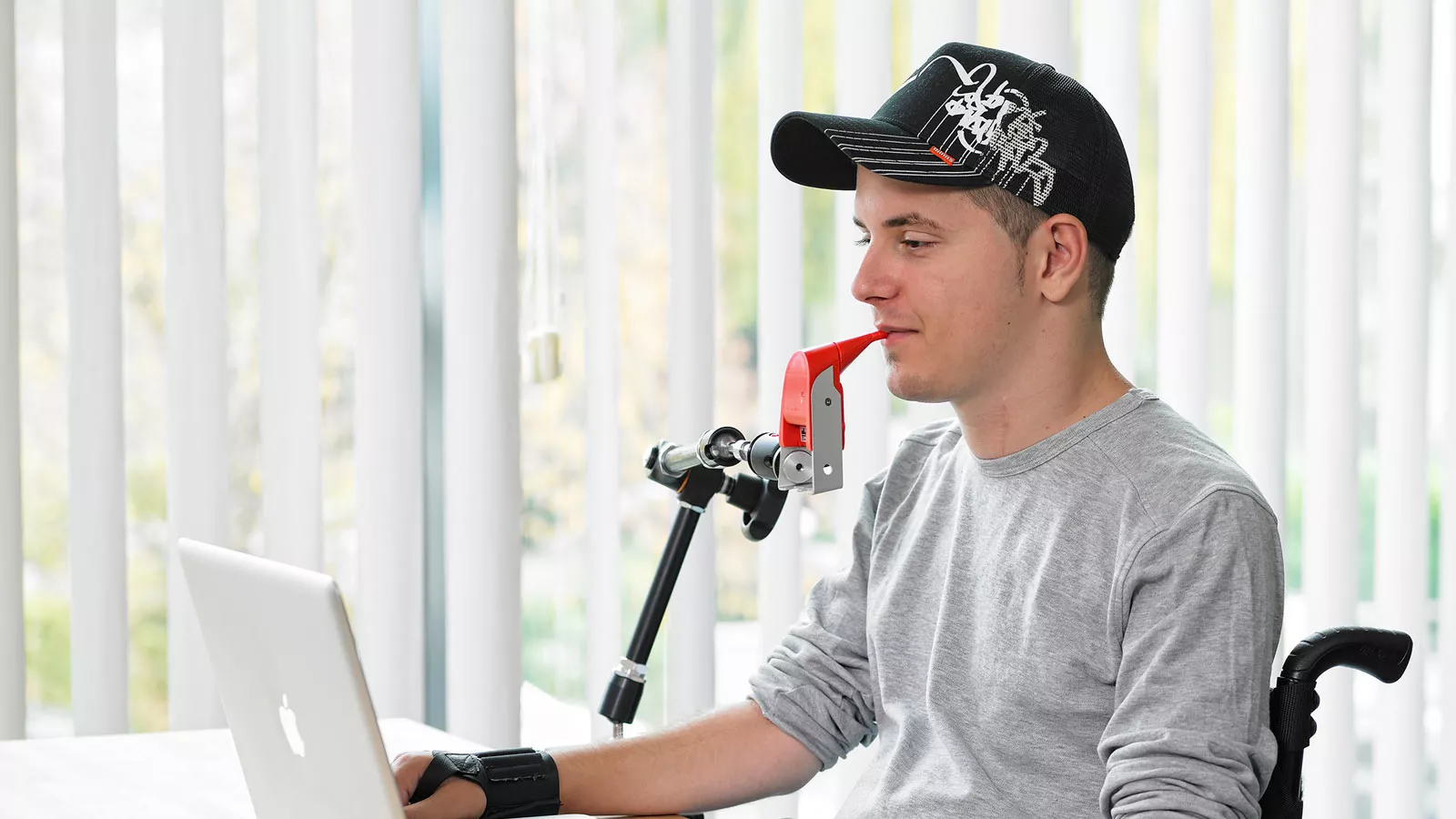Voice-controlled welding systemsFronius researches new operating options for power sources
Fronius has helped to initiate a research project known as “Welding Interaction in Future Industry” (WIFI) alongside partners, the University of Applied Sciences Upper Austria (FH OÖ), which is leading the project, and LIFEtool, a non-profit organization based in Linz, which develops tools to assist disabled people in their day-to-day lives and help them to communicate. Together, they have developed an interface which enables computers and welding systems to be operated hands-free.
SYNERGY EFFECTS THROUGH COLLABORATIVE RESEARCH
The idea behind this is that welders only have extremely limited use of their hands during the welding process, exactly like those who have become paraplegic following an accident or a stroke. For many years now, intensive research has been conducted into assistive technologies and alternative interaction methods for those with impairments, and the intention is now to apply these findings to the welding industry as part of the WIFI project. Voice control could make new fields of activity such as computer games or Esports more accessible. “We expect synergy effects that will provide benefits in both welding technology and the design of assistance systems,” explains Helmut Friedl, the responsible Project Manager at Fronius.
Welders need both hands to guide the torch, their gaze must remain with the arc at all times, and any movement of the fingers can cause inaccuracies in the seam. Friedl goes on to clarify: “Up to now, there has not been a solution that allows welders to completely set various parameters, such as amperage or arc length, without there being any interruption of the welding process. An alternative form of input, such as voice commands, could make the job of a welder significantly easier.”
AWARD-WINNING COLLABORATION WITH GREAT POTENTIAL
Karl Kaser, Head of Research and Development at LIFEtool, also sees great potential in the collaboration: “The WIFI project shows that industry can benefit from our experience in the field of assistive technologies. At the same time, solutions and tools for those with disabilities could become cheaper in future if they are produced in higher quantities for industry.” The interface developed as part of the project is intended to be used in Fronius welding systems and to supplement a mouth-controlled computer mouse created by LIFEtool.
The ambitious collaboration has already yielded its first official successes: In 2018, the WIFI project was awarded the Inclusion via Natural Sciences and Technology prize (Wissenschaftspreis für Inklusion—WINTEC) by the Austrian Federal Ministry of Labor, Social Affairs, Health and Consumer Protection. “A fabulous example of what positive effects can occur when you think outside the box,” summarizes Helmut Friedl.

